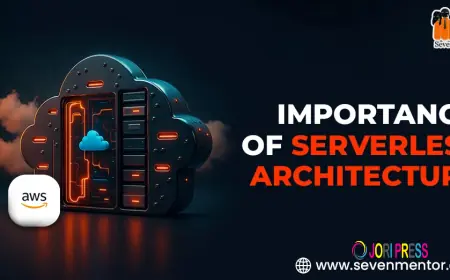India Accounting Software Market 2030: Size, Industry Share & Top Companies Analysis
Industry Key Highlights
According to TechSci Research report, “India Accounting Software Market - By Region, Competition Forecast & Opportunities 2030F”, India Accounting Software Market was valued at USD 3.38 billion in 2024 and is expected to reach at USD 5.75 Billion in 2030 and project robust growth in the forecast period with a CAGR of 9.1% through 2030.
Request For Sample Copy of Report For More Detailed Market insight: https://www.techsciresearch.com/sample-report.aspx?cid=24750#requestform
This growth is not merely driven by increasing business activity but is underpinned by a fundamental shift in how businesses manage their finances. Gone are the days when spreadsheets and manual ledger entries ruled accounting departments. Today, modern accounting solutions offer intelligent dashboards, predictive analytics, automated workflows, compliance tracking, and cloud integration — turning financial data into strategic insights.
The market is being reshaped by several transformative forces: the emergence of Artificial Intelligence (AI), the dominance of cloud computing, and the rising need for regulatory compliance. Together, they are creating a new generation of accounting tools that are intelligent, user-friendly, scalable, and indispensable to business growth.
Browse over XX market data Figures spread through 86 Pages and an in-depth TOC on the "India Accounting Software Market"@https://www.techsciresearch.com/report/india-accounting-software-market/24750.html
Market Drivers Fueling Growth
1. Digitalization of the Indian Economy
India's push toward a cashless economy, widespread internet penetration, and initiatives like Digital India are driving small and medium businesses toward digitized accounting solutions. The transition from manual recordkeeping to digital solutions is now viewed as not just a necessity but a competitive advantage.
2. Rise of SMEs and Startups
SMEs form the backbone of the Indian economy. With limited resources and a growing need for financial transparency, these businesses are adopting cost-effective cloud-based accounting platforms that can grow with them. The flexibility, subscription pricing, and user-friendly interfaces of modern solutions make them a natural fit.
3. Demand for Real-Time Financial Insights
Businesses now seek more than just basic bookkeeping. They want real-time insights, predictive reports, and data visualization. Accounting software has evolved to meet these needs by integrating features such as cash flow forecasting, KPI dashboards, and automated reconciliation.
4. Regulatory Environment & Compliance
The complexity of India’s tax structure — including GST, TDS, and regulatory filings — has made manual accounting impractical and error-prone. Accounting software solutions that automate compliance, provide built-in tax modules, and facilitate timely filings are becoming essential.
5. Cloud Computing and SaaS Adoption
The migration from on-premise solutions to cloud-based platforms has been a game-changer. Cloud accounting software enables businesses to access data from anywhere, collaborate remotely, and scale operations without investing heavily in infrastructure.
Emerging Trends in the Market
1. Integration of Artificial Intelligence (AI) & Machine Learning (ML)
AI and ML are transforming accounting software from passive recordkeepers into intelligent assistants. These technologies are now powering automated transaction categorization, fraud detection, anomaly recognition, and even financial forecasting, helping businesses make more informed decisions.
2. Rise of Mobile Accounting
With mobile penetration exceeding 90%, accounting on-the-go is gaining momentum. Entrepreneurs, freelancers, and field teams increasingly rely on mobile applications for expense tracking, invoicing, and approvals, bringing convenience and agility to financial management.
3. Personalized Dashboards and UX-Driven Design
Modern accounting platforms now emphasize user experience (UX). With customizable dashboards, intuitive workflows, and simplified interfaces, businesses can tailor accounting processes to their specific needs — improving both usability and adoption rates.
4. Embedded Payments and Banking Integration
Accounting software is integrating with banking and payment gateways, enabling seamless bank reconciliation, invoice payments, and vendor management. This not only improves accuracy but also speeds up payment cycles and liquidity management.
5. Automation of Tax Filing and Audit Readiness
Tax season is no longer a stress point. Software providers are now incorporating features for GST return filing, audit trails, and document digitization — making tax compliance smoother and reducing reliance on external auditors.
Market Segmentation Overview
By Enterprise Size: The Dominance of SMEs
The Small and Medium Enterprises (SMEs) segment continues to dominate the accounting software market in India. These businesses increasingly demand:
-
Affordable solutions
-
Easy implementation
-
Basic-to-advanced functionality
-
Scalability to grow with their operations
Cloud-based, subscription-driven models are helping SMEs transition to digital accounting without overwhelming costs. These platforms offer tools for:
-
Invoicing
-
Payroll
-
GST compliance
-
Financial reporting
Larger enterprises also constitute a significant market share but typically require highly customized, integrated ERP systems — leading to longer sales cycles and higher total cost of ownership.
By Region: The North Leads Market Growth
The Northern region of India — encompassing Delhi, Haryana, Punjab, Uttar Pradesh, and Rajasthan — is emerging as the fastest-growing regional market. Key growth factors include:
-
Thriving startup ecosystems in Delhi NCR, Noida, Gurugram
-
Rising SME activity in industrial hubs like Ludhiana, Jaipur, and Kanpur
-
Government-backed digital infrastructure programs
-
A tech-savvy population with increasing financial literacy
These states also benefit from excellent connectivity, high urbanization, and supportive government policies for tech-driven business practices. The region's rapid adoption of cloud and mobile technologies further accelerates accounting software usage.
Competitive Landscape
The India Accounting Software Market is highly competitive and includes both global tech giants and indigenous SaaS pioneers. Here’s a look at key players:
1. Intuit Inc.
Known for QuickBooks, Intuit dominates the small business segment with user-friendly cloud-based solutions tailored for expense tracking, invoicing, and tax filing.
2. Tally Solutions Pvt. Ltd.
A homegrown name, Tally is deeply rooted in Indian businesses, particularly in Tier II and III cities. Its GST-ready modules and local language support make it a go-to solution for SMEs.
3. Zoho Corporation
Zoho Books, part of the broader Zoho ecosystem, offers seamless integration with CRM, inventory, and HR tools — making it ideal for businesses seeking all-in-one platforms.
4. Microsoft Corporation
Microsoft Dynamics 365 offers enterprise-grade capabilities, particularly suited for large businesses with complex requirements, including multi-location operations and detailed analytics.
5. SAP SE and Oracle Corporation
These players dominate the large enterprise segment with robust ERP integration, real-time reporting, and scalability across industries.
6. Acumatica, Infor, Zeta Software
These vendors are carving out a niche in mid-market and industry-specific solutions, offering advanced customizability and cloud-native platforms.
10 Key Benefits of the Research Report
-
Market Size & Forecast: Offers comprehensive projections of the India Accounting Software Market up to 2030.
-
Segmental Analysis: Breaks down data by component, enterprise size, type, end-user industry, and region.
-
Competitive Mapping: Evaluates the positioning of major players and emerging disruptors.
-
Trend Identification: Uncovers current and future technology and adoption trends.
-
Regulatory Landscape Insight: Covers implications of tax reforms, compliance mandates, and digital policies.
-
Growth Opportunities: Identifies untapped potential in Tier II and III cities.
-
Strategic Recommendations: Suggests action plans for vendors, investors, and businesses.
-
Customer Insights: Provides usage behavior and preference data from SMEs and large enterprises.
-
Investment Landscape: Details current funding activity in accounting and fintech startups.
-
Customization Options: Allows tailoring of the report to specific business needs or verticals.
Future Outlook
The future of the India Accounting Software Market is exceptionally bright. The convergence of government policy, digital enablement, cloud infrastructure, and evolving business needs will continue to drive adoption across segments.
Key Predictions for the Future:
-
Increased automation in core accounting tasks such as reconciliation, depreciation, and budgeting.
-
Rise in AI-powered insights for real-time decision-making.
-
Greater focus on data security and privacy, especially in cloud environments.
-
Emergence of blockchain-based accounting to enhance auditability and reduce fraud.
-
Expansion of industry-specific accounting platforms tailored to sectors like agriculture, education, and healthcare.
By 2030, accounting software will no longer be a back-office function. It will evolve into a strategic business enabler, providing the financial clarity and agility businesses need in a competitive environment.
Customers can also request for 10% free customization on this report.
Conclusion
India’s accounting software landscape is undergoing a profound transformation. What was once a domain dominated by manual bookkeeping is now a field of advanced, intelligent, and highly customizable digital platforms. With SMEs leading the charge, the shift toward cloud, automation, and real-time financial insights is not just a trend — it’s the new standard.
Businesses that invest in the right accounting technology today are not just ensuring compliance or efficiency — they are laying the groundwork for innovation, strategic agility, and long-term growth. As the market evolves, both software providers and end-users must stay ahead of technological, regulatory, and competitive developments to maximize their success.
Contact US:
Techsci Research LLC
420 Lexington Avenue, Suite 300,
New York, United States- 10170
Tel: +13322586602
What's Your Reaction?
 Like
0
Like
0
 Dislike
0
Dislike
0
 Love
0
Love
0
 Funny
0
Funny
0
 Angry
0
Angry
0
 Sad
0
Sad
0
 Wow
0
Wow
0



















































